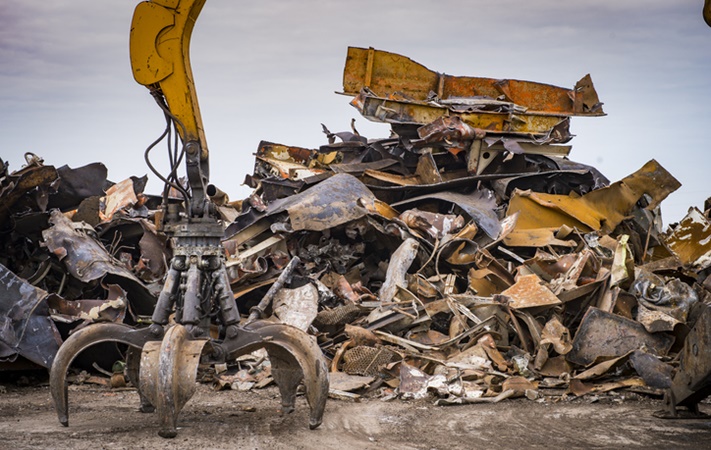RecycleGuard Articles

RecycleGuard Articles

It is no secret that for over 25 years, the RecycleGuard insurance program has been the go-to solution to keep your scrap recycler clients properly protected. We’re not just writing accounts, we are also keeping you and your recycling clients informed on the latest trends in the industry. ReMA, the recycling industry’s most reputable trade association, regularly solicits the RecycleGuard team’s expertise to author timely and educational content for their members. Below is a library of the latest articles authored by the RecycleGuard team.
Contractual Risk Transfer: A Critical but Often Overlooked Risk Management Tool
(7/2025)
The Risks of Employment Practices Liability
(7/2025)
Employment practices liability (EPL) presents a growing risk exposure for businesses, managers, and leadership teams. Claim frequency historically rose during periods of workforce disruption, such as the 2008 recession, and may remain elevated as workforce expectations evolve and awareness of employee rights continues to increase. Understanding EPL and proactively addressing coverage and risk management is essential to protecting your organization.
Safe Fleets Start with Safe Drivers
(7/2025)
Making Safety a Core Value
(7/2025)
For years, ISRI has held safety as a core value and has captured that in the ISRI Environment, Health, and Safety motto “Safely, or Not at All.” Why is safety a core value? First, and most important, it’s the morally and ethically right thing to do—to make sure all the industry’s employees, customers, and the public we share the roads with go home safely to their families each day. Second, safety is good for business.
Creating an Effective Insurance Submission
(7/2025)
Evaluating Your Insurance Team
(7/2025)
Managing the Risks of Temporary Workers
(5/2025)
How Financial Strength Can Affect Your Insurability
(12/2020)
Welding Safety Resource
(2/2020)
The need for welding can vary from scrapyard to scrapyard, and it’s typically less of a focus for environment, health, and safety professionals than its spiritual cousin, torchcutting. Though it achieves the opposite goal—reconstructing rather than deconstructing—welding falls into the same category of “hot work” and introduces many of the same risks to both the worker and the yard.
Considering Demolition Risks
(2/2020)
Timely Claims Reporting
(10/2019)
When you face a claim, your first instinct might be to fix the issue or hope the problem goes away on its own. You might be thinking that if the issue goes away, or the aggrieved party drops the claim, it won’t affect your insurance coverage and cost. Research has shown, however, that claims which are not reported in a timely fashion cost more to resolve. Insurance carriers that incur additional loss costs pass them on to policyholders as increased insurance premiums, which affect your bottom line.
Today's Property Insurance Market & Surplus Lines Solutions
(6/2019)
The Safety and Economic Benefits of Telematics
(12/2018)
Telematics is the term for technologies that remotely monitor vehicle information from the engine control computer, GPS location tracking, and—in some systems—cameras. Commercial truck fleets tend to use systems with cameras, such as those from San Diego–based Lytx (formerly DriveCam), Orion Fleet Intelligence (Conshohocken, Pa.), and 3rd Eye (Katy, Texas). With the information telematics can provide, operators can better control their capital and human assets for better cost and safety outcomes.
Good News from the Insurance Market
(10/2018)
Environmental Impairment Liability Coverage
(6/2018)
How a Minor Accident Becomes a Major Claim
(2/2018)
Preparing for Mother Nature’s Worst
(12/2017)
Hurricanes Harvey, Irma, and Maria affected millions of individuals and businesses and had an estimated $500 billion in economic impact. These events reminded all of us of the need to plan for such catastrophes to protect people, prevent or minimize damage to property, transfer the financial risk of such damage, and prepare for recovery. Is your business prepared should a catastrophe hit?
The Dollars and Sense Behind Insurance to Value
(10/2017)
Protecting Against Fire and Other Property Losses
(10/2016)
Here’s some good news: RecycleGuard® program participants seem to be experiencing fewer property losses each year. For every $100 million of insured property value, the program experienced just over nine losses in 2012; in 2015 that fell to about five and a half losses. Unfortunately, at the same time the frequency of losses is falling, their severity seems to be increasing. In the past five years, the average cost per claim was lowest in 2013, at about $30,000, rising to more than $74,000 in 2014, then falling slightly to about $60,000 in 2015.

